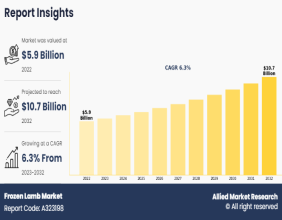Highlights
- High investor demand surpasses available shares.
- Generates significant market buzz and excitement.
- Often leads to rapid price appreciation post-IPO.
An Initial Public Offering (IPO) becomes known as a "Hot Issue" when investor demand far exceeds the number of shares available for purchase. This phenomenon typically occurs when a company's growth prospects, industry positioning, or brand reputation generate extraordinary interest among investors. As a result, the demand for shares skyrockets, creating a frenzy in the market.
Why Do Hot Issues Occur?
Hot issues arise when investors perceive an IPO as an exceptional opportunity for substantial returns. This perception can be driven by several factors, including:
- Strong Brand Recognition: Companies with well-established brand names or high visibility often attract more attention during their IPOs. Investors anticipate that public recognition will translate into strong sales and profitability.
- High Growth Potential: Startups or companies in rapidly growing industries, such as technology or biotech, are often seen as high-potential investments, attracting aggressive buying interest.
- Scarcity of Shares: Limited availability of shares relative to demand creates a sense of urgency among investors, further intensifying demand.
The Impact on Market Dynamics
When an IPO becomes a hot issue, it significantly influences market dynamics. The oversubscription of shares often leads to:
- Price Surge: Once trading begins, the high demand frequently drives the share price above the initial offering price. This rapid appreciation benefits early investors who secure shares at the IPO price.
- Volatility: The intense buying activity can lead to high volatility, with prices fluctuating sharply as investors react to market momentum.
- Increased Media Attention: Hot issues often garner extensive media coverage, amplifying public interest and attracting more investors who fear missing out on the opportunity.
Risks and Rewards for Investors
While hot issues can offer significant gains, they also carry substantial risks:
- Potential for Overvaluation: In the frenzy of demand, stocks can become overvalued, posing a risk of price correction once initial excitement subsides.
- Allocation Challenges: Due to high demand, individual investors may receive fewer shares than they requested, limiting potential profits.
- Volatility Risk: Rapid price movements can lead to losses if investors misjudge market timing.
Conclusion
Hot issues in the IPO market reflect heightened investor enthusiasm and perceived growth opportunities. While they offer the potential for rapid gains, they also come with significant risks, including volatility and overvaluation. Investors should carefully assess the underlying fundamentals of the company and be mindful of the market dynamics before participating. By balancing enthusiasm with strategic analysis, investors can navigate the opportunities and challenges presented by hot issues.



